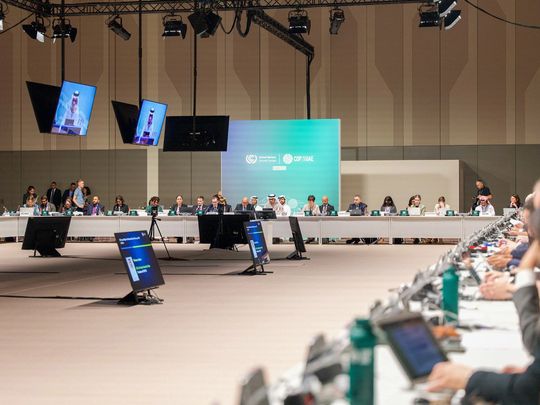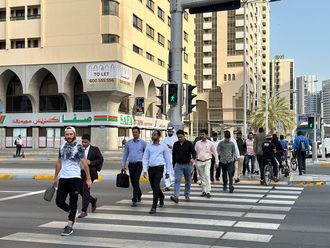
Dubai: The International Energy Agency (IEA) has urged a commitment from the oil and gas industry to align their strategies and investment portfolios to the 1.5C targets, with a focus on a 75 per cent reduction in methane emissions by 2030.
The IEA has also recommended tripling global renewable energy generation capacity by 2030 and doubling annual energy efficiency improvements in seven years.
The recommendations from the IEA came after the intergovernmental energy organisation, comprised of 31 member countries, concluded high-level dialogues with the COP28 Presidency on Saturday - featuring over 40 heads of state, ministers, and business leaders.
The final dialogue also achieved convergence on the importance of developing financing mechanisms for a major scaling-up of clean energy investment in emerging and developing economies.
In response, Dr Fatih Birol, Executive Director of the IEA, said: “I’m encouraged by the support by governments around the world during the dialogue for the IEA’s five pillars for success at COP28. We now need to see this support translate into concrete commitments and action.”
Attendees of the high-level dialogue highlighted the strong support for the COP28 Presidency’s Global Renewables and Energy Efficiency Pledge, which 130 countries have signed.
‘Just transition’
There was also a broad agreement on the need for urgent action on coal, “not only on no new unabated coal plants but also on accelerating the retirement of existing plants”.
COP28 President Dr Sultan Al Jaber said: “This series of dialogues has allowed us to converge on the critical elements of the just energy transition.”
However, Al Jaber said the transition will be complex, but it will be harder if countries can agree on its central components.
“Simply put, to deliver the highest possible ambitious response to the Global Stocktake, we must work together,” he added.
The final Dialogue between IEA and UAE’s COP28 Presidency follows a year of engagements, where critical elements of the energy transition, including renewables, energy efficiency, financing, fossil fuel demand and supply, and decarbonisation, were discussed.








